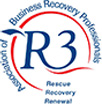A debt relief order, or DRO, as sometimes referred to is a form of formal insolvency and designed to help individuals on lower than average incomes who are struggling with their debts and are not in a position to pay them back.
What is a Debt Relief Order?
Debt relief orders are designed to assist individuals whose financial situation is unlikely to improve in the medium to long term. If you believe that the financial issues being faced are a short-term problem, then a debt relief order might not be appropriate for you.
If you are eligible for a Debt Relief Order, the Official Receiver, being the Government Body of the Insolvency Profession, will take control of your debts. If your application for a Debt Relief Order is successful, then it is probable that you will become debt free and be able to make a fresh start without the worry of having to battle with ongoing debt.
If a Debt Relief Order is the right process for you, as soon as you have made your application, your creditors, having being served notice of your intention, should no longer be allowed to contact you to pursue the debt owed. Your debts should be written off after 12 months.
Given that Debt Relief Orders are a relatively recent addition to the insolvency profession, they are designed to help the most vulnerable of individuals who are suffering financially and, therefore, in order to qualify for approval, the qualifying criteria is strict.
The information that you provide in relation to your financial affairs must be accurate and a true reflection of your position. It is an offence to mislead the Official receiver in relation to your financial affairs.
To be eligible to apply for a Debt Relief Order, you do need to meet the following Criteria.
- Your current debt balances must not total more than £20,000 if you live in England or Wales, or more than £15,000 if you live in Northern Ireland.
- You cannot own assets worth more than £1000 if you live in England or Wales, or more than £300 if you live in Northern Ireland.
- You must have no more than £50 left over each month after paying your household bills.
- You cannot own a domestic vehicle that is worth more than £1,000.
- You must not currently involved in other insolvency proceedings or had a previous DRO within the last six years.
- You must have lived, had a property or carried out business in England, Wales or Northern Ireland in the last three years.
The Official Receiver can perform an investigation as part of the application process and can reject the order if:
- You have given away property or other assets, or sold it for less than its true value in the last two years.
- If you have shown preferential treatment in the payments to some of your creditors over others in the last two years.
Should you need any further guidance, or need to talk about your financial affairs, contact Corporate Financial Solutions today who will be able to provide you with advice that you need.


